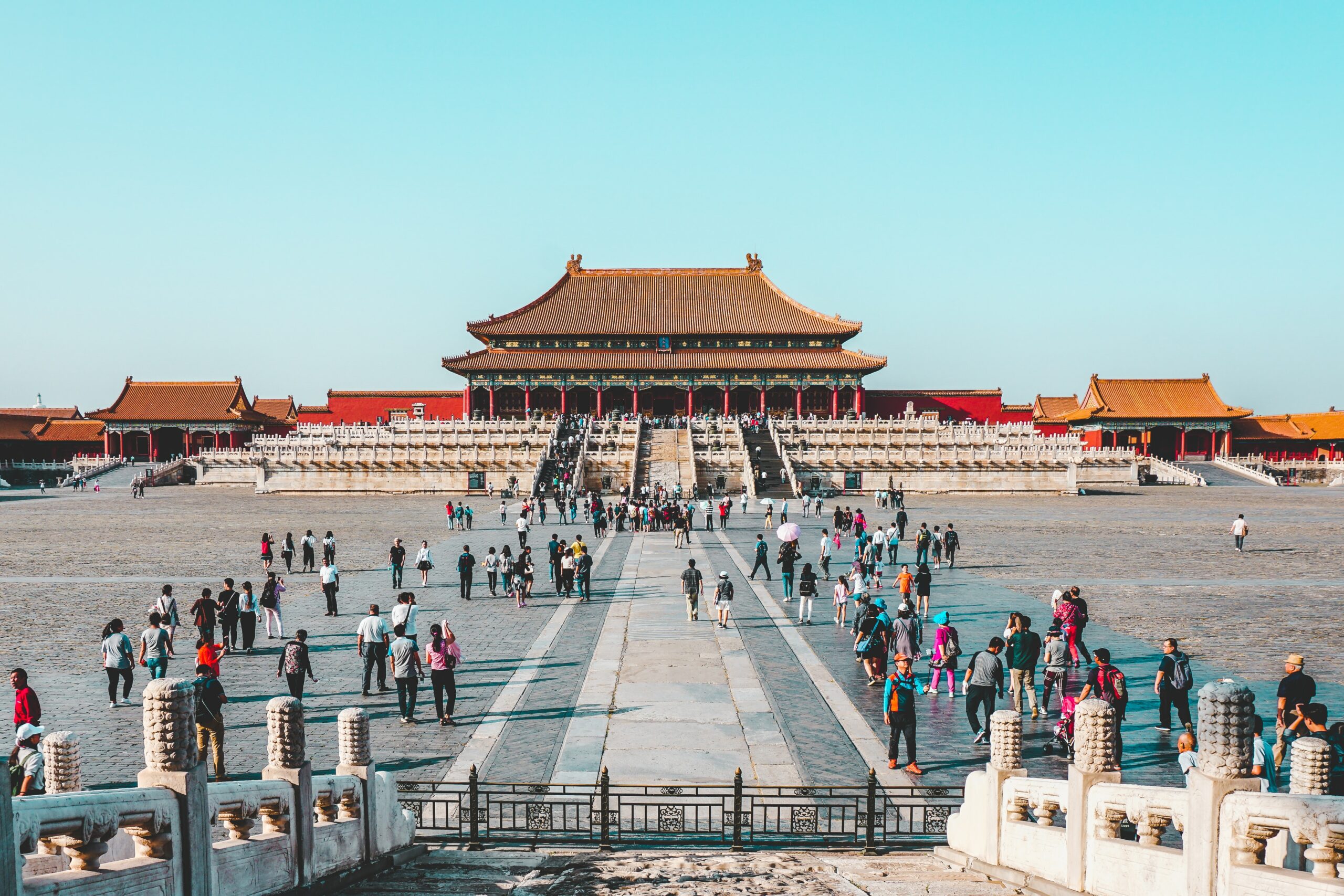Very few citizens of foreign countries are allowed to enter the People’s Republic of China, particularly if they don’t hold a Chinese permanent residence permit. Americans are no different: With the exception of 72-hour and 144-hour visa-free transit visits, US citizens need a visa to enter China.
Your Comprehensive Guide to Obtaining a China Visa
From world-renowned landmarks, like the Great Wall of China, the Forbidden City, and the Terracotta Army, to its rich, century-spanning culture, cuisine, history, and art, China is a must on any traveler’s bucket-list.
Along with vibrant historic treasures that span thousands of years of empires and dynasties, China is home to some of the most modern, cutting-edge cities on Earth, like Shanghai and Hong Kong. Ancient landscapes, like the stone pinnacles of Zhangjiajie National Forest Park, sit alongside futuristic cities with dramatic skylines, and around the country travelers can dive into history, culture, food, and more at markets, temples, pagodas, grottoes, and towns.
While China’s many attractions make it a must-visit, China is also notoriously strict with access to the country, and tourism is strongly regulated. In general, most tourists are only admitted as part of a tour group, and independent travel is difficult to arrange. That’s why it’s helpful to know all the ins and outs to help you plan your trip to China, such as how to get a visa, what is required to enter the country, and what cultural norms you should know.
Our complete guide to Chinese travel has everything you need to know before you go.
Essential Travel Information
-
Official language
Mandarin
-
Time Zone
China Standard Time (GMT +8)
-
Climate
Equatorial, subtropical, tropical and moderate
-
Calling Code
+86
-
Electricity
220V/ 50Hz (plug types A and I)
-
Capital City and US Embassy
Beijing
-
Currency
Renminbi, or Chinese yuan (¥; CNY); current exchange rate, 1 US dollar = 7.26 renminbi (exchange rate subject to change)
Unlocking the World: Adventures Await on Your Traveler's Path
Get your VISADo US Citizens Need a Visa for Travel to China?
China Visa Requirements for US Citizens
The most common type of visa for US travelers to China is the tourist visa, also known as the L Visa.
China Tourist Visa
Eligible for up to 10 years, the China tourist visa (or L visa) permits visas to China of 30 to 90 days. The typical length of time granted is 60 days.
The L visa is valid for up to 10 years and allows multiple entries into China. However, to get the 10 year visa, your passport needs to be valid for at least a full year past the application date. Otherwise, you’ll be granted a six month visa and will need to reapply with a new passport.
China Business Visa
The Chinese business visa (M Visa) allows travel to China for commercial and trade activities and is suitable for those traveling for work-related purposes, valid for up to 90 days. US citizens may be eligible for a 10-year, multiple-entry visa for stays of up to 90 days, though it’s allotted on a case-by-case basis.
General Travel Requirements to Enter China
Along with the appropriate valid visa, you’ll need a valid foreign passport to enter China, with at least two blank visa pages and six months’ validity. If you’re visiting visa-free using a 72 or 144-hour transit stay, you’ll need to show proof of your onward transportation to the Chinese government authorities upon entering the country.
Obtaining the L visa also comes with a separate list of necessary documents, including an official letter of invitation issued from your tour company or Chinese-citizen host, completed visa application form, flight arrangements, and hotel bookings.
At customs, travelers are required to present a negative COVID-19 test result taken within 48 hours of departure for China. The US Centers for Disease Control and Prevention (CDC) has a comprehensive list of recommended vaccines.
China Travel Restrictions
As of August 30, 2023, China is no longer requiring a negative COVID-19 test result before entering the country.
While being vaccinated against COVID-19 is recommended, US travelers don’t need to provide proof of vaccination status to Chinese authorities. Masks are not currently required, though they are recommended if you test positive upon arrival.
The US State Department has multiple travel advisories set for American citizens in China. A Level 3 Travel Advisory urges travelers to reconsider travel to Mainland China, due to the arbitrary enforcement of local laws, including in relation to exit bans, and the risk of wrongful detentions, and to Macau, due to a limited ability to provide emergency consular services. A Level 2 alert is also in place for Hong Kong and Macau, advising travelers to exercise increased caution due to the arbitrary enforcement of local laws.
Consult your country’s Chinese embassy for the latest COVID-19 travel advisories and the CDC for the most recent recommendations regarding travel to China. For more up-to-date information about travel restrictions to China, check Entriva’s travel map , or with the US State Department and the US embassy and consulates in China.
Health and Safety in China
While China is usually a safe travel destination, its strict laws and current conflicts in the Uyghur and Tibet autonomous regions mean that travelers need to take precautions while traveling there.
From guarding against air pollution to knowing which parts of the country to avoid due to violent conflicts, our guide to health and safety in China details how to remain safe and secure during your trip to China.
Local Laws for Travelers to China
China’s strict and harsh laws and legal system have earned it an international reputation as a difficult country to visit and explore, so you should educate yourself beforehand and stay on the right side of the law. That includes learning about what items aren’t allowed into the country, where you can and cannot take photographs, appropriate dress code, and being cautious with your internet usage due to the Great Firewall of China and Chinese internet censorship.
Immediately seek legal assistance if you’re arrested and imprisoned in China, and don’t hesitate to alert your country’s embassy or consulate. They should be able to provide insight—and you’ll need all the help they have to offer.
Money, Banking, and Currency in China
As a foreign citizen traveling around the People’s Republic of China, you’ll be using the People’s Currency:the renminbi, or Chinese yuan. Available in banknote, coin, and digital form, the yuan is one of the most widely traded currencies on Earth.
In China, you can easily exchange foreign currency for yuan at banks and currency exchanges or use ATMs to withdraw cash directly. Learn more about China’s cultural attitudes toward money, including tipping etiquette, with our complete guide to Chinese renminbi.
Preparing for Your China Trip
Obtaining a visa is an essential part of planning your trip. At Entriva, we can easily and efficiently help you with every aspect of getting a China visa. Start your visa application process.
Essential Travel Information
-
Official language
Mandarin
-
Time Zone
China Standard Time (GMT +8)
-
Climate
Equatorial, subtropical, tropical and moderate
-
Calling Code
+86
-
Electricity
220V/ 50Hz (plug types A and I)
-
Capital City and US Embassy
Beijing
-
Currency
Renminbi, or Chinese yuan (¥; CNY); current exchange rate, 1 US dollar = 7.26 renminbi (exchange rate subject to change)
Unlocking the World: Adventures Await on Your Traveler's Path
Get Traveler Visa










